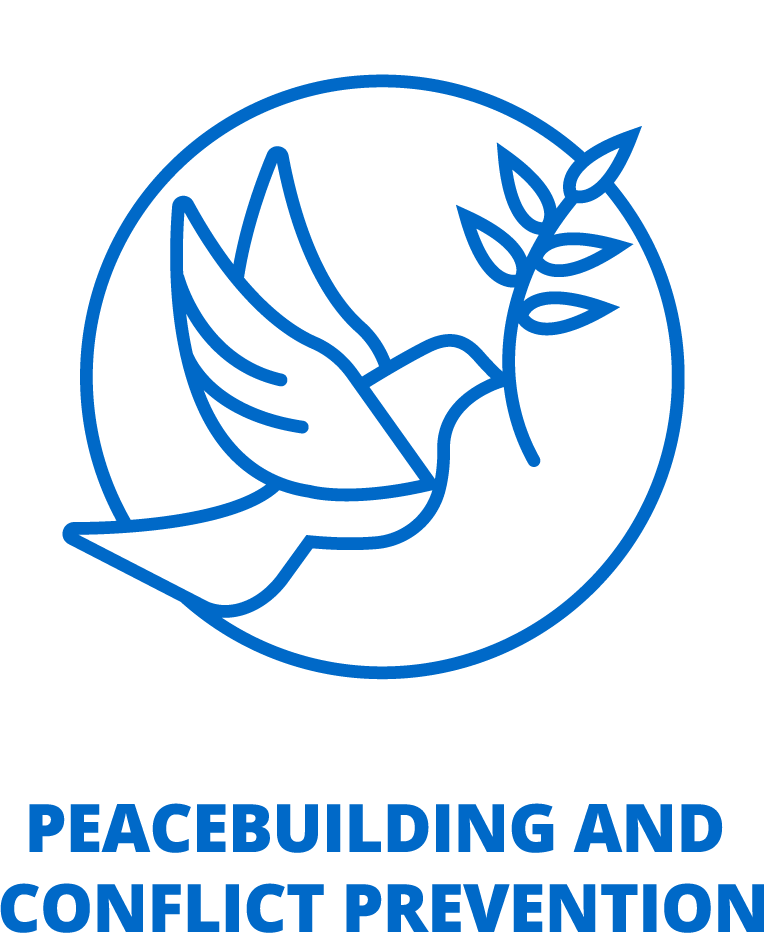Putting an end to domestic violence
The statistics are sobering: Intimate partner violence is the most common type of violence against women, affecting 30 percent of women worldwide, according to a 2013 World Health Organization report. As many as 38 percent of murders of women are committed by an intimate partner.
In New Zealand, a dozen women are killed by their partners or ex-partners each year. And in Australia, a woman is killed, on average, about every week.
“We once decided we would end polio when it seemed impossible. Why can’t Rotary put an end to domestic violence?”
Recognizing the desperate need for domestic-violence services in their communities, Rotary clubs throughout Australia and New Zealand are fundraising and partnering with charities to raise awareness and work on prevention and victim support.
As one club president said: When ending polio seemed insurmountable, Rotary stepped in. Why can’t Rotary help end domestic violence?
More than one approach
The Rotary Club of Maryborough, Victoria, Australia, is changing attitudes about domestic violence and generating positive community response with its multifaceted approach. What began as a social media campaign has grown to include community educational programs, publicity events that have reached millions, and the opportunity to present its SAFE program to the Royal Commission Into Family Violence (Victoria).
The Support, Advice, Facilitation, and Early Intervention model is a collaborative approach that gives everyone in the community a role to play in addressing family violence. Garry Higgins, the club’s project manager for the campaign #SayNO2familyviolence, believes it’s the type of program that has global application.
“As an independent, apolitical organization, Rotary can do and say things others can’t,” says Higgins, who presented the SAFE program to the Royal Commission.
Getting people to talk about domestic violence — once a taboo subject in the small town — was one of the club’s biggest challenges. To start that conversation, the club launched a communication campaign, Speak Up! #SayNO2familyviolence, which included social media posts and promotional brochures and posters.
For help spreading the message, the club targeted the key cultural and behavioral influencers in the community: local sporting clubs. The harness racing club supported the campaign, and the football club recently held its third #SayNO2familyviolence championship competition.
Changing behavior
“I’ve learned a new way to deal with my ex-partner. My children will benefit from this — it’s all good now.”
An online program is helping abusive men learn new ways to deal with their anger and have more satisfying personal relationships. The Men’s Behaviour Change Program, formed by Violence Free Families, is a 13-week live, interactive program for men who can’t — or won’t — attend counseling sessions in person, because of work schedules or embarrassment.
Melbourne University evaluated the program and reported positive results for the men who took part in four trials over the past two years.
“I’ve learned a new way to deal with my ex-partner,” said one program participant. “My children will benefit from this — it’s all good now.”
The Rotary Club of Brighton, Victoria, Australia, launched Violence Free Families in 1995, after a local child’s violent death. The club has raised more than $750,000 for the program, endorsed by Rotary District 9800 and supported by all 70 district clubs and Women in Rotary.
Family safety nets
A 2008 report by the Australian government’s Department of Social Services identified domestic violence as the principal cause of homelessness for women and their children.
The Path of Hope Foundation, a joint venture between the Salvation Army and the Rotary Club of Perth, Western Australia, provides safe accommodations for those fleeing family violence. It also offers guidance and resources to help families overcome trauma and rebuild their lives. Members of the Perth club raise funds and volunteer at the center.
“We’re hopeful that Path of Hope can become a model for Rotary clubs and Salvation Army centers around the world to adopt,” says club member Graham Peden. “It’s already achieved a great deal through improving the lives of victims of domestic violence in Western Australia.”
Rosie Batty, whose son was murdered by his father, shares her story of resilience at the 2016 Rotary International Convention in Korea
Elsewhere, the Rotary Club of Bendigo, Victoria, held a fundraiser in May for survivors of family violence. Guests had the chance to hear 2015 Australian of the Year Rosie Batty speak about her personal experiences with domestic violence. Batty’s 11-year-old son, Luke, was murdered by his father in 2014.
The evening netted more than $16,000 for the Annie North Women’s Refuge and Domestic Violence Service. The funds will help buy new furniture for families moving from emergency housing to permanent sites.
Batty also was a keynote speaker in June for the 2016 Rotary International Convention in Korea.
Larrie Winzar, president of the Bendigo club during Batty’s talk in May, said: “When disaster strikes, most of us have insurance to replace the items we’ve lost. In situations of family violence there is no insurance, so support from organizations and service clubs such as Rotary can make a difference to someone starting over.”
Support Rotary to change lives and improve communities through peacebuilding and conflict prevention












